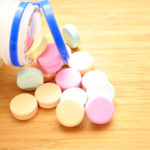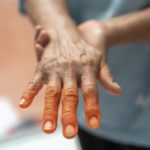By David Blyweiss, M.D., Advanced Natural Wellness
April 01, 2013
- Corn dogs, heartburn and big money…
- 3 reasons to avoid those powerful antacids
- Your best bet for long-term relief
Television commercials for heartburn medications make it sound like everyone should be taking them. Pop your pill in the morning, then run off and eat all of the corn dogs and greasy food you want – without any digestive consequences.
The ads for Prilosec and Nexium sure seem to be working.
In 2010 Prilosec was the sixth most prescribed drug in the U.S. A total of 53.4 million prescriptions were dispensed. During the same year, American’s spent a whopping $6.3 billion dollars on Nexium – “the purple pill.” This makes Nexium the number two top-seller out of all prescription drugs sold in America.
Both of these drugs are proton pump inhibitors, or PPIs. You probably just call them antacids. After all, that’s what they do. They reduce stomach acid.
But here’s thing.
Not everybody who gets heartburn or indigestion needs one of these drugs. And none of them are intended for long-term use. Doctors were warned not to prescribe these drugs for more than 6 weeks… and then they went over the counter. In the last few months, I have seen patients who’ve been on PPIs for more than 10 years. Yet none of them should be used long-term.
This type of drug is intended to treat certain intestinal and esophageal problems. But only for a few weeks at a time. However many people take them day after day for months to years on end.
The most common use is for the treatment of gastroesophageal reflux disease, or GERD.
MD Exposes the Hidden Danger to Your Eyes

When your eyesight starts to fail, it's a real problem. Suddenly you can't go to the grocery store... you can't get to the doctor if you have an emergency... you can't meet your friends for dinner…
Your "regular" doctor doesn't have time to keep up with the latest research. And the same goes for eye doctors. They go to school to learn how to fit you for glasses and contacts, but have no way of preventing the damage and loss of eyesight that threatens your freedom and independence.
Let me show you something that explains a LOT about how your eyes work.
In my FREE Special Report, I'll show you a HUGE, untapped resource for your eyes that safely and naturally restores clear, effortless eyesight.
Click here to get started...
Problem is, about 70% of people taking PPIs have never been diagnosed with GERD. In fact, a lot of people who are on these meds don’t have any established medical need for them.
These PPIs can be a big setback for your health. Here’s why…
Frequent indigestion can be painful and annoying. And who doesn’t want relief? So taking a pill to reduce stomach acid sounds simple enough. After all, what harm could it do?
Well, unknown to you, it may be doing more damage than you would expect.
The whole idea behind this class of drugs is to reduce hydrochloric acid in the stomach. But that, in itself, creates even further problems. Just take a look at what happens when this acid is destroyed.
Fracture risk increases – Study after study shows PPIs increase the risk of bone fractures in both men and women. And I’m not just talking about two or three obscure research reports. When researchers performed a meta-analysis on 11 international studies, the results were pretty conclusive. PPIs increase the risk of hip, spine and “any-site fractures…”
And just last year another meta-analysis came to the same conclusion. Eight of the studies in this second analysis found an increased risk of fracture at the hip. And five of them showed increased risk of spinal fractures.
The problem here is that the reduction of stomach acid makes it harder for your body to breakdown, digest and absorb calcium from food or even calcium supplements.
Add that to the bone loss we suffer from caffeine, our declining hormone levels, our tendency to avoid exercise (which gives good “stress” to the bones) and you’ve got a big problem. Weakening of the bones.
And while falls and fractures are a threat at any age, they become an even greater risk once you pass the half-century mark.
But there is good news. You see, when you quit these drugs you may be able to restore your bone health. Some studies show fracture risk is reduced after discontinuing the use of PPIs.
Vitamin B12 becomes depleted – The destruction of hydrochloric acid production literally strips your ability to properly absorb vitamin B12. Among other things, a deficiency in B12 can increase homocysteine levels. And that’s bad news for your heart health.
Are You Suffering From...
- Love handles and a pot belly
- Romance that isn't what it used to
- Forgetfulness and inattention
- Low (or no) strength and endurance
- A sex drive that's shifted into neutral...or worse
If so...you may have Mature Male Burnout. Click here to discover more about this unique condition and what you can do about it.
This is a great concern because B12 deficiency often goes unrecognized and untreated here in the U.S. However it’s much more common than most people (and doctors!) realize.
And the use of antacids only contributes to the problem.
If your body can’t absorb vitamin B12 you may experience weakness, fatigue, poor memory, confusion and nerve problems. Discontinuing PPIs can help, but I also suggest supplementing with a sublingual B12 spray. 1,000 to 2,000 mcg. daily will help restore this vital nutrient.
Bacteria invades your colon – When your stomach acid is stripped away it’s easier for bad bacteria to pass through your stomach unchallenged and right in to overtake your colon and intestines. In particular, it opens you up to a bacterial disease called clostridium difficile. This “super-bug” – affecting around 3 million people each year – causes diarrhea and colon inflammation. (This is not MRSA or the other recently identified “super-bug” Carbapenem-resistant Enterobacteriaceae (CRE).)
And recently these infections have become more and more common among people who are taking proton-pump inhibitors. In one study, 64% of all patients who developed C. difficile infections were on PPIs. No one has studied the other infections regarding this.
The big concern with this type of infection is that it’s really hard to beat. The risk of recurrence is about 20 percent after the first infection. And it’s as high as 60 percent after multiple infections. It’s estimated that as many as 30,000 people die from this bacterial infection each year.
These outcomes are completely avoidable. Here are some simple things you can do to prevent heartburn and stomach upset. And avoid the consequences of the “purple pill”.
When your digestive system starts beating you up, it’s sending a message. Chances are real good your body isn’t getting the digestive enzymes and healthy gut bacteria it needs to function. And taking an acid suppressant won’t help with either.
Digestive enzymes help break down proteins, fats, carbohydrates and sugars. They also help your body absorb the nutrients from your foods. But the major food source of these enzymes is fresh, raw fruits and veggies. And the foods we get today have far less of these enzymes than they used to.
Try boosting your intake of the most enzyme-rich produce like parsley, kale, broccoli, apples, pears and strawberries.
I also suggest supplementing with a good digestive enzyme. Look for a blend of amylase, lipase and protease enzymes and take with your meals.
Adding a high quality probiotic is also a good idea. And I’m not talking about picking up some yogurt at the grocery store. Most commercial products don’t have nearly enough good bacteria in them.
Instead, look for a supplement containing multiple strains of lactobacillus and bifobacterium. It should also include a “prebiotic” to help the good bacteria survive the trip to the gut and intestines. This will help restore a healthy balance of microflora to keep your digestive tract working smoothly.
I also have two more quick tips…
Believe it or not, at least half of patients with heartburn – especially those over age 60 – don’t have enough stomach acid! So taking an antacid is counterproductive.
To find out if you are among them, try taking a tablespoon of apple cider vinegar when heartburn strikes. If the pain disappears, that’s a pretty good indication that your body isn’t producing enough hydrochloric acid. If that’s the case, just take 600 mg of HCI at the beginning of each meal.
And if you need to heal the damage caused by GERD and acid-blocking drugs, try deglycyrrhizinated licorice (DGL). Studies show that DGL eases heartburn symptoms and repairs the mucosal lining of the stomach. Simply chew two DGL tablets before eating or whenever heartburn strikes.
With so many safe natural solutions to indigestion and digestive issues, it’s easier than you think to quench the fire in your belly and enjoy your favorite foods again.
Resources:
Yu EW, Bauer SR, Bain PA, Bauer DC. Proton pump inhibitors and risk of fractures: a meta-analysis of 11 international studies. Am J Med. 2011 Jun;124(6):519-26.
Lau YT, Ahmed NN. Fracture risk and bone mineral density reduction associated with proton pump inhibitors. Pharmacotherapy. 2012 Jan;32(1):67-79.
Choudhry MN, Soran H, Ziglam HM. Overuse and inappropriate prescribing of proton pump inhibitors in patients with Clostridium difficile-associated disease. QJM. 2008 Jun;101(6):445-8.
Khayyal MT. Antiulcerogenic effect of some gastrointestinally acting plant extracts and their combination. Arzneimittelforschung. 2001;51:545-553.






